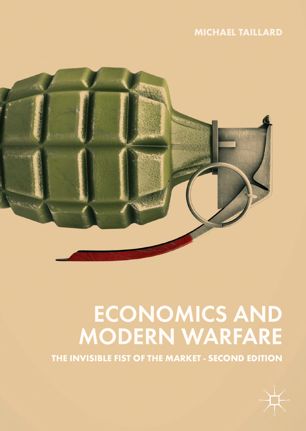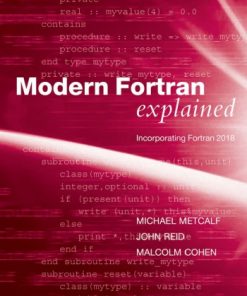Economics and Modern Warfare 2nd Edition
$50.00 Original price was: $50.00.$25.00Current price is: $25.00.
Economics and Modern Warfare 2nd Edition – Ebook Instant Download/Delivery ISBN(s): 9783319926926,9783319926933,3319926926,3319926934

Product detail:
- ISBN 10: 3319926934
- ISBN 13: 9783319926933
- Author: Michael Taillard
This book demonstrates how economic tools have been used throughout history to accomplish goals of military conflict, how they can be used more effectively than traditional means of warfare in the modern era, and how we can derive a better understanding of economic strategy applicable not just to the military but also to market competition. This new edition includes a thorough updating of chapters on advances in our understanding of economic warfare and more recent examples, such as ISIS’s reliance on obtaining control over oil production facilities, North Korea’s nuclear program, and China’s emphasis on scientific research and technological innovation. This edition also features an entirely new chapter on the commercialization of the conflict over the region of Kashmir.
Table of contents:
- 1. A Critique on Current Methods
- Part I. Supply Manipulation
- 2. Altering Distribution of Supplies
- 3. Altering Distribution of Capital Assets
- 4. Altering Distribution of Human Assets
- 5. Physical Confrontation
- 6. Systempunkt Targets
- 7. Limitations and Failures of Supply Manipulation
- 8. Suggestions for Future Research
- Part II. Trade Manipulation
- 9. Preliminary Concept: Terms of Trade
- 10. Preclusive Purchasing
- 11. Resource Appropriation
- 12. Supply Exploitations
- 13. Tactical Hiring
- 14. Tactical Pricing
- 15. Trade Agreements
- 16. Currency Manipulation
- 17. Counterfeiting
- 18. Limitations and Failures of Trade Manipulation
- 19. Suggestions for Future Research
- Part III. Market Manipulation
- 20. Economic Intelligence
- 21. Labor Exploitations
- 22. Expropriating Peoples
- 23. Equity and Debt Engineering
- 24. Equilibrium Redirection
- 25. Decision Management Modeling
- 26. Resource-Based View of Conflict
- 27. Profits of the Game
- 28. Limitations and Problems with Market Manipulation
- 29. Suggestions for Future Research
People also search:
You may also like…
History - Military History
Business & Economics
Climate Economics: A Call for More Pluralism And Responsibility 1st Edition
Business & Economics
Computers - Programming
dictionaries & phrasebooks
Teaching and Researching Listening 2nd Edition by Michael Rost B009JX21UQ
Business & Economics - Economics
Politics & Philosophy - Warfare & Defence
Military-Age Males in Counterinsurgency and Drone Warfare 1st Edition Sarah Shoker
Business & Economics - Accounting
History - Military History
Tactical Air Power and the Vietnam War: Explaining Effectiveness in Modern Air Warfare 1st edition












